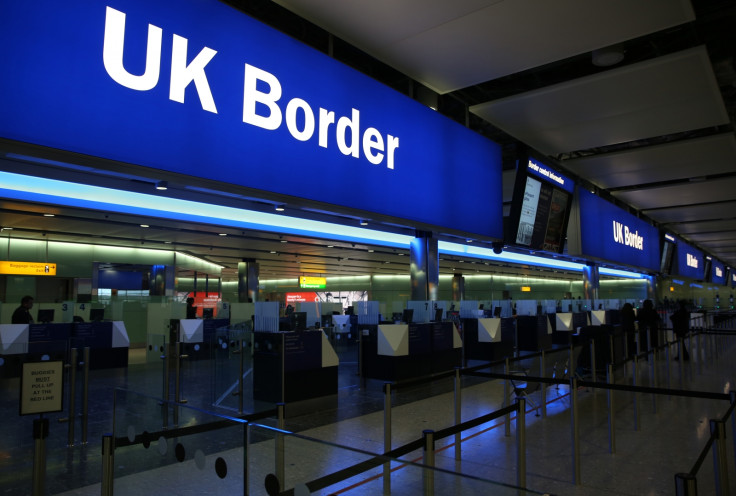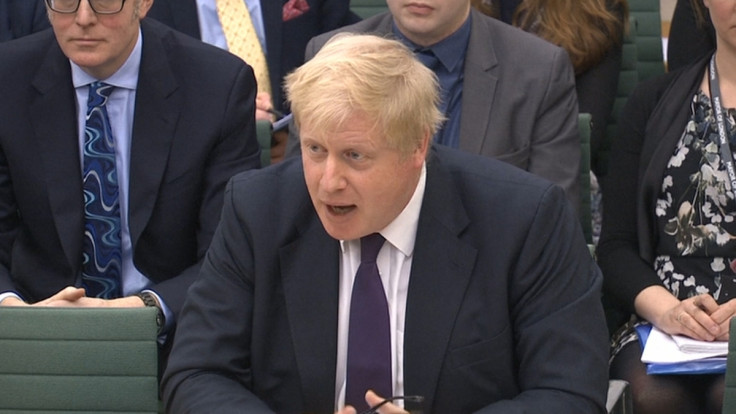EU referendum: Former MI6 chief Sir Richard Dearlove says Britain safer outside the EU

The former head of MI6 Sir Richard Dearlove has just given a big boost for the Brexit campaign. Coming barely days after the terror attacks in Brussels, the former spy chief has said that the UK would be safer outside the European Union.
Writing in the current affairs magazine Prospect, he said: "Whether one is an enthusiastic European or not, the truth about Brexit from a national security perspective is that the cost to Britain would be low. Brexit would bring two potentially important security gains: the ability to dump the European Convention on Human Rights - remember the difficulty of extraditing the extremist Abu Hamza of the Finsbury Park Mosque - and more importantly, greater control over immigration from the European Union."
Pouring cold water over claims by Prime Minister David Cameron that the UK is more secure inside the bloc, he said that Europe could not turn its back on Britain if it left the EU because London's intelligence services "give much more" than they get in return. Dearlove led the Secret Intelligence Service from 1999 to 2004.
Dearlove was also highly critical of the EU's intelligence bodies, describing them as the "leakiest ships of state" and colanders riddled with holes. He said: "The larger powers cannot put their best intelligence material into such colanders. The British voice is nonetheless very influential because its intelligence and security community is, an will certainly remain, the strongest and most mature in Europe."
He also dismissed claims that a Brexit would harm intelligence cooperation between the UK and the EU. "It is difficult to image any of the other EU members ending the relationships they already enjoy with the UK."
He said liaison between allies is partly driven by 'moral considerations'. For instance, if Germany learns of a terrorist plot against London, it would not withhold the intelligence from MI5 simply because the UK is no longer within the bloc, he pointed out.
Dearlove also highlighted the fact that the US was a more important counter-terror ally. "Would Brexit damage our defence and intelligence relationship with the United States, which outweighs anything European by many factors of 10? I conclude confidently that no, it would not."
He continued: "There would be disapproval of Brexit in Washington, and some disappointment too, but the practical consideration of living in a dangerous world and depending on true friends would win out. In short, Europe would be the potential losers in national security. But if Brexit happened, the UK would almost certainly show the magnanimity not to make its European partners pay the cost."

London Mayor Boris Johnson and Farming Minister George Eustice both expressed similar views that Britain's membership in the EU was harming national security. Johnson told MPs: "I've seen various people quoted as saying that remaining in the EU is essential for security. I think it's important to put a countervailing point which is that there are some ways now that the European Court of Justice is militating against our ability to control our borders in the way we want to and indeed to maintain proper surveillance."

He also brought up the case of Abu Hamza. Citing the case of Abu Hamza's daughter-in-law who tried to smuggle SIM cards to him in prison, he said: "We couldn't deport her not because of the Strasbourg Court of Human Rights but because of the European Court in Luxembourg, which is now able to adjudicate on the entire corpus of the Charter of Fundamental Rights."
He also raised the issue of how the European Courts had tried to stop governments and the security services from retaining phone data that is "essential" to monitoring terrorists. "What has that got to do with completing the internal market? What has that got to do with free trade? The answer is absolutely nothing. It is morphing into a political union of the kind that I think is no longer in our interests."
Similarly, Eustice pointed out that the Schengen zone of passport-free travel in the EU meant that terrorists could move freely within the region. Even the Belgium's ambassador to the UK, Guy Trouveroy noted that the free movement under Schengen increased the risk of terrorist attacks. "There is no hiding ... it is an issue," he said.
Home Secretary Theresa May however insisted that EU membership and access to its intelligence was "of benefit" in preventing terror plots. She told MPs: "I think there are a number of mechanisms that we are part of within the EU that do enhance our security."
No 10 Downing Street however pointed to comments made by David Anderson, the independent reviewer of terror laws and the former Foreign Secretary Malcolm Rifkind, who both claimed that Britain would be safer within the bloc.
© Copyright IBTimes 2025. All rights reserved.





















